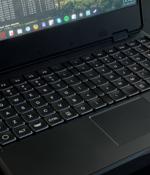Security News

Google has introduced Device Trust from Android Enterprise, a new solution for making sure that private Android devices used for work are secure enough to access corporate resources and data....

Microsoft research says that 80-90 percent of ransomware attacks over the past year originated from unmanaged devices. The threat BYOD presents is compounded by the steep rise in overall ransomware incidents this year; Microsoft says human-operated ransomware attacks are up by more than 200 percent since September 2022.

Exacerbating the challenge of managing devices is the fast-evolving threat landscape that organizations are facing, with 41% of respondents concerned about the growing number of vulnerabilities in Apple operating systems and the volume of patches that must be applied across both devices and applications. Michael Covington, VP of Portfolio Strategy at Jamf, comments: "While it is easy to get swept up in the positives surrounding 'anywhere work' programs that empower employees to work remotely on their own schedule, from any location and from any device, organizations need to examine the associated risks and decide how to manage them."

For SlashNext's The Mobile BYOD Intelligence Report, the company surveyed 300 individuals about the use of personal devices for work, how employers balance security and employee privacy with the popularity of Bring Your Own Device, and the resulting gaps in cybersecurity. Right off the bat, the survey found that the use of personal devices for work has been increasing.

Ninety-eight percent of BYOD companies say they compensate employees for the use of their personal mobile devices, with the average stipend now reaching $40.20 per month. Companies opting for a BYOD approach report spending $893 per employee annually, when combining stipends, in-house and outsourced management, and MDM software.

Amid the COVID-19 crisis, the global market for BYOD and enterprise mobility estimated at $84.4 billion in the year 2022, is projected to reach a revised size of $157.3 billion by 2026, growing at a CAGR of 16.7% over the analysis period, according to Global Industry Analysts. The BYOD and enterprise mobility market in the U.S. and China.

Bitglass and Cybersecurity Insiders announced several findings from a report that show the rapid adoption of unmanaged personal devices connecting to work-related resources and why organizations are ill-equipped to deal with growing security threats such as malware and data theft. The study surveyed hundreds of cybersecurity professionals across industries to better understand how COVID-19's resulting surge of remote work has affected security and privacy risks introduced by the use of personal mobile devices.

Security professionals are bracing for the next phase of the remote work reality: personal devices coming back into the office and bringing along all the associated security risks. Security teams are worried about the security status of laptops, smartphones and tablets employees will bring to the office after using them on a home network for months without proper supervision or control.

Still, leasing is beneficial because rather than jeopardizing cybersecurity to purchase large volumes of hardware, enterprises can rent fully covered devices. Comparable to DaaS providers, leasing companies are responsible for device maintenance and have to ensure that every laptop, phone, and tablet has the appropriate security software.

Social media apps put corporate networks at risk and provide raw material for deep fakes. Based on data from data from November 2019 to April 2020, 39% of abandoned apps with live installs were in the productivity category, and 30% were in games and entertainment.